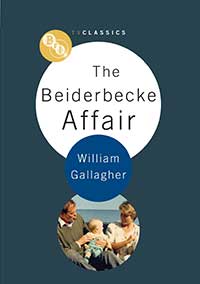The best work you ever do will be so much trouble, so much effort, that by the end you will hate the sight of it all. But they are important enough to you throughout and you love them so much at the start, that you must be willing to hate them if that’s what it takes to get them on.
I’m not clear. I can feel it. Let me try an example, see if this is any more comprehensible. I once pitched to write a book about The Beiderbecke Affair in part because I love that show. (UK edition, US edition)
I also felt that Alan Plater’s drama series warranted the attention plus I knew there was enough material to do, I had all the professional reasons you can think of covered. But also I loved it and Alan was important to me, that’s why I picked up the phone to the British Film Institute.
Nonetheless, I knew that by the time I’d finished the book, I would’ve seen the show so often and I would’ve said the word Beiderbecke so much and I would’ve thought about it so incessantly that I would be weeping to get away from it.
Still, I knew the book was worth that. And if I came out the other end hating The Beiderbecke Affair, that was a small price to pay for hopefully getting the work to other people, introducing other people to the Beiderbecke world.
As it happens, it didn’t happen, I didn’t hate it once. I got a bit panicky, I got a bit worried about the deadline, but I never hated it.
Actually, there was one night right in the middle of it all when I was away researching Beiderbecke scripts at the Hull History Archive and I needed something to watch. I had a pizza, I had a tiny hotel room, it was so hot and I was so tired that I was nude, actually, nude and freshly showered, stretched out on a towel on my bed and deeply needing something to watch. I had certainly read several hundred pages of Beiderbecke scripts that day and I know I had photographed a thousand. (I had no scanner but I made an arrangement with the archivists that I could photograph the pages to effectively make copies of the script to study later.)
I was cross-eyed and knackered. Too hungry and too hot to just sleep, too weary to read, too bone-tired to think. There was no TV and all I had on my iPad was The Beiderbecke Affair episode 5.
And I loved it. Was disappointed that I hadn’t got episode 6 on there.
But I was willing to hate The Beiderbecke Affair if necessary. And if your work, if your project, doesn’t come with that risk, find a better project, okay?
Easy.
